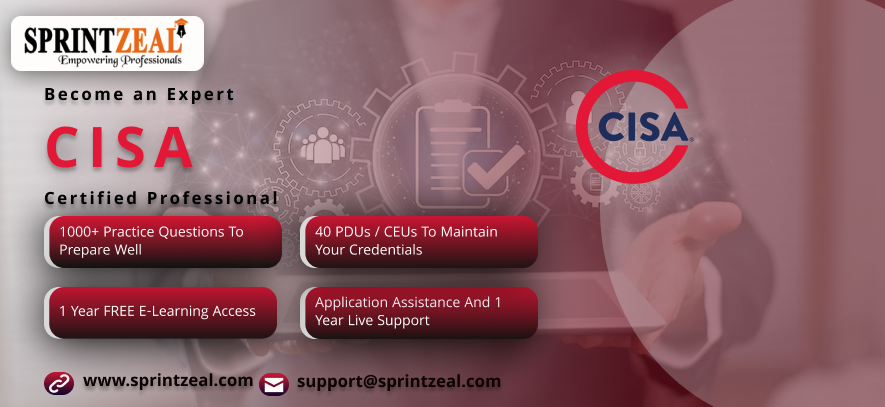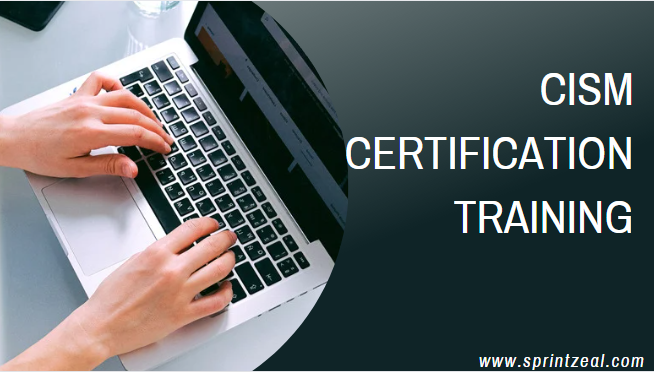Preparing for the Certified Information Systems Auditor (CISA) certification can be a demanding journey. The certification, granted by ISACA, is widely respected and demonstrates a high level of proficiency in information systems auditing, control, and security. However, achieving CISA certification is no simple task, as the exam requires a solid understanding of various concepts and an ability to apply them practically. Many candidates focus heavily on what to do, but knowing what not to do can be equally valuable. Avoiding these common mistakes can streamline your preparation, reduce unnecessary stress, and increase your chances of passing the CISA exam.
Here are eight things not to do when preparing for the CISA exam:
1. Don’t Skip the CISA Review Manual
One of the biggest mistakes candidates make is skipping ISACA’s official CISA Review Manual (CRM). The CRM is not just a textbook; it is the primary resource crafted specifically for the exam and contains vital information aligned with the exam objectives. While other supplementary materials and practice questions can be beneficial, the CRM provides a structured understanding of the topics you need to master. Skipping it can result in gaps in your knowledge, especially in areas that are exam-focused but may not be covered in other resources.
Pro Tip: Start with the CRM to build a strong foundation, then use other resources to deepen your understanding and gain practice.
2. Don’t Ignore the CISA Domains Structure
The CISA exam is divided into five domains:
- Domain 1: Information System Auditing Process (21%)
- Domain 2: Governance and Management of IT (17%)
- Domain 3: Information Systems Acquisition, Development, and Implementation (12%)
- Domain 4: Information Systems Operations, Maintenance, and Service Management (23%)
- Domain 5: Protection of Information Assets (27%)
Each domain has a specific weight in the exam, and not paying attention to this can lead to overemphasizing some areas while under-preparing in others. Ignoring the domain structure might mean you’re less prepared for the most heavily weighted areas, which can significantly impact your score.
Pro Tip: Allocate your study time according to the weight of each domain. Focus more on domains with a higher percentage, especially Domain 4 and Domain 5, to ensure you cover the most tested areas.
3. Don’t Rely Solely on Memorization
The CISA Course in Washington is not just about memorizing facts; it’s about understanding concepts and applying them in different scenarios. Candidates who rely solely on memorization often struggle with the situational and scenario-based questions in the exam. A better approach is to understand the “why” behind each concept and practice applying your knowledge in various contexts.
Pro Tip: Take the time to comprehend each topic. Use real-world examples to relate to the concepts and try explaining them in your own words to reinforce understanding.
4. Don’t Overlook Practice Questions
Another common pitfall is neglecting practice questions or delaying them until the last minute. Practice questions are essential for identifying areas of weakness, testing your knowledge, and getting familiar with the exam format. Skipping them can lead to surprises on exam day and reduce your comfort level with the question style.
Pro Tip: Begin doing practice questions early in your study plan. Incorporate them regularly and aim to complete full-length practice exams close to your test date to build exam stamina and boost confidence.
5. Don’t Neglect Time Management Skills
Time management is crucial for success on the CISA exam. With 150 questions and a four-hour time limit, candidates must maintain a steady pace without getting bogged down on difficult questions. Many candidates make the mistake of spending too much time on one question and then rushing through the rest, resulting in careless mistakes and unanswered questions.
Pro Tip: Practice managing your time during mock exams. If you’re stuck on a question, mark it and move on. Return to it later if time allows. Aim to answer each question in around 90 seconds to keep a balanced pace.
6. Don’t Ignore ISACA’s Code of Professional Ethics
As a future certified information systems auditor, you will need to understand ISACA’s Code of Professional Ethics and the ISACA IT Audit and Assurance Standards. Many candidates skip this, assuming that technical knowledge is enough. However, questions related to ethics and standards often appear on the exam, and not being familiar with them can cost you valuable points.
Pro Tip: Make sure you review the Code of Professional Ethics and understand the principles of ethical behavior as expected from a CISA. The standards outline expectations for professional conduct, which are essential to know for both the exam and your professional role.
7. Don’t Cram the Week Before the Exam
Cramming can be tempting, especially when time is running out, but it’s a counterproductive approach for the CISA exam. Cramming increases stress and usually doesn’t allow for deep understanding, which is critical for scenario-based questions. Candidates who cram are likely to feel overwhelmed and mentally fatigued during the exam.
Pro Tip: Instead of cramming, plan for consistent study sessions over several weeks or months. Use the last week to review key concepts, revisit your notes, and go over practice questions rather than trying to learn new material. This will help reinforce your knowledge without causing burnout.
8. Don’t Forget to Take Care of Yourself
A common yet overlooked mistake is neglecting self-care during exam preparation. Focusing solely on studying while ignoring rest, nutrition, and physical activity can affect your performance on exam day. Fatigue, stress, and burnout can impair memory, concentration, and problem-solving abilities, which are critical for passing the CISA exam.
Pro Tip: Prioritize a balanced study routine with regular breaks, sufficient sleep, healthy meals, and physical activity. These small self-care practices can boost your mental sharpness and endurance, helping you perform better both during preparation and on the exam day.
Final Thoughts
The journey to CISA certification is challenging but achievable. By avoiding these common mistakes, you can create a balanced, effective study plan that sets you up for success. Preparation should involve a mix of study resources, time management, and self-care strategies. The CISA certification not only tests your knowledge of information systems auditing but also demands practical application and ethical understanding.
Remember, passing the CISA exam is not just about mastering the content—it’s about taking a strategic approach to your preparation.




